Protection Applications
Solutions for varnishes and coatings to secure layers, resins for electronic encapsulation, and overmolding for connector sealing.
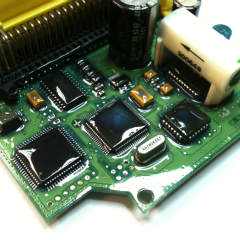
CONFORMAL COATINGS AND VARNISHES
Conformal coatings and varnishes are polymeric materials applied in thin layers (in the micron range) on printed circuits or other electronic substrates. They provide mechanical and environmental protection, extending the lifespan of electronics. Conformal coatings protect against climatic aggressions (condensation, salinity, thermal shocks, etc.), mechanical damage (dust or abrasive particles), and chemical exposure, while also offering the necessary flexibility to minimize mechanical stress.
Depending on the thickness, we distinguish four levels of protection: (tropicalization, thin layer, thick layer, and impregnation).
- Tropicalization: < 15 microns thick
- Thin layer: 15 to 60 microns thick
- Thick layer: 60 to 400 microns thick
- Impregnation: 400 microns to 1-2 mm thick
At APS, we have extensive knowledge and practical experience, covering all key aspects:
- Electrically insulating products.
- Flexible and tough materials.
- Completely neutral curing.
- Options for repairable grades and UL94-V0 certification.
- Waterproof and effective against humidity, condensation, vapors, salt mist, drips, dust, etc.
- Adaptable to various production processes: spraying, painting, dipping, or selective coating.
- Solvent-based or 100% solid content formulations.
- Special low-toxicity formulations.
We offer a wide range of chemical bases (acrylics, polyurethanes, alkyds, epoxies, silicones, etc.), as well as cleaners and complementary solvents/diluents.
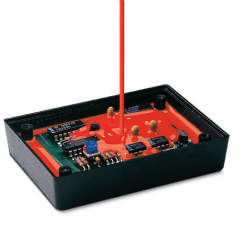
ENCAPSULATING AND CASTING RESINS
Protection through enclosure potting or casting (a similar operation using molds) involves the partial or complete embedding of electrical or electronic assemblies. This ensures maximum protection against extremely harsh working conditions, including:
- Sealing levels for temporary or permanent immersion (IP67 and above).
- Impacts and/or targeted mechanical stresses.
- Exposure to extreme climatic conditions.
- Need for packaging and securing large components while ensuring protection.
- Masking against inspection.
At APS, we specialize in defining the most suitable material to meet your needs and production processes. We offer a wide range of epoxy, polyurethane, and silicone resins that allow us to respond to any situation, including the need for specific characteristics or special properties:
- Thermally conductive resins.
- Optical-grade transparent resins, resistant to yellowing.
- Low-density resins.
- Repairable resins.
We also offer specific encapsulation services for customers in prototyping and small-series production who do not wish to internalize the processing of these products.
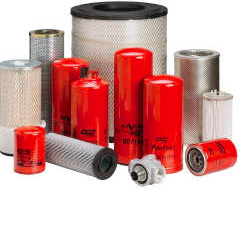
LOW-PRESSURE OVERMOLDING
Low-pressure (over)molding (LPM) technology was originally developed to seal connectors in the automotive market for Peugeot and Citroën manufacturers. Since then, its use has expanded to the molding of electronic circuits and other components such as sensors, ferrites, windings, etc...
The goal is to protect delicate parts through total or partial overmolding using special low-molecular-weight polyamide-based resins (hot-melt or thermofusible systems), which can be injected at relatively low temperatures and pressures.
These resins are characterized by providing excellent electrical and insulating properties, high-temperature resistance, and good adhesion to various substrates.
Today, this technology is widely used to encapsulate devices with conventional electronic components, connectors, and wiring in industries such as automotive, home automation, computing, and household appliances, among others.
Main features:
- Protects PCBs, components, resistors, capacitors, connectors, etc., without requiring an enclosing case.
- Achieves sealing up to IP67. Effective sealing against water, humidity, dust, dirt, etc.
- Good mechanical performance and electrical insulation.
- Resistance to extreme temperatures (-40 to +150ºC).
- Completely free of toxic, aggressive, or corrosive agents. Environmentally friendly products.
- Allows customization of geometries, logos, emblems, labels, etc.
Process advantages:
- Simple and highly cost-effective molds.
- Fast, simple, and reproducible processes; easily automated.
- Adaptable to any production process or manufacturing scenario.
At APS, we have extensive experience applying this technology across various industries (automotive, electronics, RFID, etc.). Additionally, we offer a comprehensive mold design and execution service, as well as overmolding of parts, in collaboration with our partner SMARTECH.
Visit our Overmolding Services section for more information.
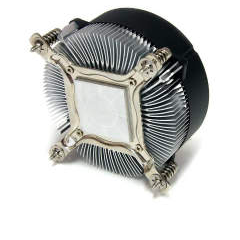
HEAT DISSIPATION AND THERMAL MANAGEMENT
The growing need to dissipate heat generated by components such as microchips, MOSFETs, IGBTs, power LEDs, etc., has led us to offer a wide range of products that meet increasingly demanding dissipation requirements.
The goal is always to efficiently transfer the heat generated by the component to a heat-dissipating part. This fixation can be adhesive or non-adhesive (reparable), depending on the nature of the assembly.
Our TIM (Thermal Interface Materials) ensure:
- Intimate contact between surfaces.
- Excellent thermal conductivity.
- Evacuation/displacement of interstitial air.
- Reduced thickness to enhance dissipation efficiency.
- Various curing strategies, offering great adaptability to production processes and sensitive materials.
APS has extensive practical experience with these types of materials: we assist in defining the most suitable TIM for your needs, including handling, dispensing processes, and curing methodology.
We are also experts in encapsulating resins with thermally conductive properties, essential when high protection and sealing levels must be combined with effective heat dissipation and electrical insulation (power supplies, power electronics, etc.).
We collaborate in conducting thermographic studies, heat flow calculations, geometry analysis, evaluation of dissipative materials, etc.
We offer a wide variety of chemical bases (acrylics, polyurethanes, alkyds, epoxies, silicones, etc.), as well as cleaners and complementary solvents/diluents.
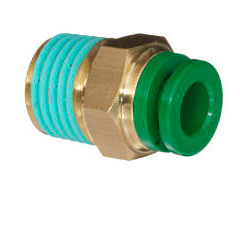
SEALING, WATERPROOFING, AND GASKETING
Both concepts refer to the need to prevent the passage of solid particles, liquids, or vapors between two surfaces in a durable manner over time. The harsh conditions and stringent requirements have led to the development of specific processes and products to achieve this.
The correct selection of the technology type is crucial to achieving the objective, taking into account the following aspects:
- Nature of the involved substrates.
- Need for adhesion on dissimilar substrates.
- Resistance to chemical agents and specific working conditions.
- Other factors: deformations, stresses, impacts, vibrations, etc.
- Infrastructure and processing capabilities.
At APS, we are experts in achieving sealing and waterproofing in the most demanding situations:
- Automotive (connectors, displays, headlights, etc.).
- Aerospace and marine (buoys, beacons, radars, etc.).
- Sensor technology (sealing cavities, pins, relays, electrical contacts, etc.).
- Photovoltaic panels (sealing of modules, diode boxes, etc.).
- Sealing of threaded systems in water and gas pipelines.
- Outdoor lighting (megascreens, LED modules, signage, etc.).
We offer products with specific viscosity and rheology for the formation of in-situ formed sealing gaskets (FIPGs / Formed-in-Place Gaskets).